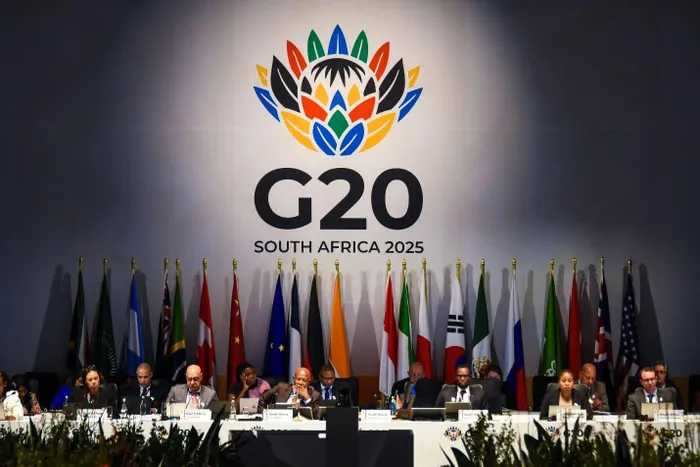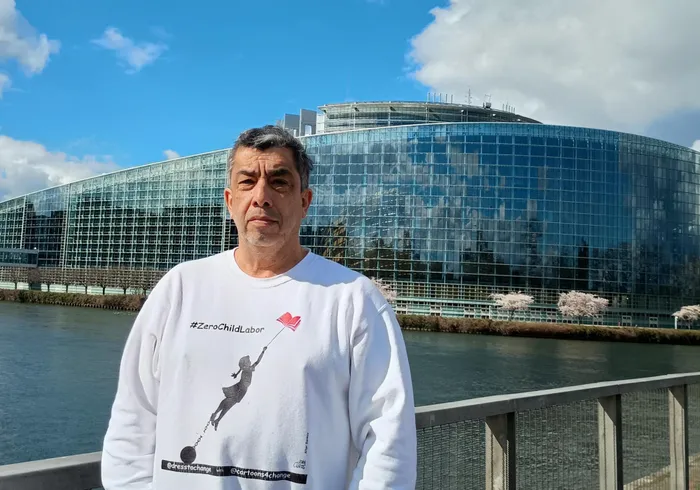The G20 controls most of the world’s wealth – yet its corporations still profit from child labour in agriculture, mining and manufacturing

Ending child labour is neither utopian nor complicated, writes Fernando Morales-de la Cruz.
Image: Supplied
The G20 likes to present itself as the world’s premier forum for economic cooperation. But when its leaders gather in South Africa, they will be meeting as the governments that collectively represent nearly 80% of global GDP, two-thirds of the world’s population, and roughly three-quarters of the world’s 2,000 largest corporations by revenue. Even more concentrated is corporate power inside the G7, which hosts a disproportionate share of these top companies. With such overwhelming economic weight, the G20 has both the influence and the legal and moral obligation to end child labour and forced labour — obligations they themselves committed to fulfilling by 2025.
Yet that deadline is now. And instead of progress, we are witnessing catastrophic regression. At least 120 million children are still working inside G20 countries themselves, while tens of millions more are trapped in global supply chains controlled or financed by corporations headquartered in G20 and G7 capitals. Nearly 400 million children work worldwide.
This exploitation is not abstract. It happens in the most visible industries: in the mining of cobalt, gold and other minerals essential for electric vehicles and consumer electronics; in sugar fields and vegetable and fruit farms that supply global food companies; in flower farms whose products fill supermarkets in Europe and North America. All too often, children are the hidden workforce behind the low prices and high profits of companies that present themselves as ethical or sustainable.
Of course, not all G20 members are rich. The bloc is de facto divided between high-income nations and those still fighting to meet basic development needs. But this does not reduce the responsibility of the richest economies — nor the corporations headquartered within their borders — which dominate global finance, trade, and commodity supply chains. Hundreds of these corporations still operate with business models that function as modern neocolonial systems: extracting wealth from the Global South while externalising poverty, risk, and harm onto children and vulnerable communities.
If the G20 is serious about its own commitments, the first step is obvious: they must impose binding requirements on corporations and investors to eliminate child labour and forced labour across all supply chains, not merely to “monitor” or “mitigate” risk. Transparency reports and voluntary frameworks have failed. Profit can no longer be allowed to flow from the bodies of exploited children.
Ending child labour is neither utopian nor complicated. It requires fair wages for adults, living incomes for farmers, enforceable labour protections, and the redirection of even a fraction of the trillions in annual corporate revenue toward ensuring dignified work and universal education. Every G20 country has signed international treaties recognising the right of all children to education—every country except the United States, which remains the sole nation refusing to ratify the UN Convention on the Rights of the Child.
The G20 has the power to end child labour. What is missing is the political will to force corporations to abandon neocolonial business models and replace them with economic systems that respect human rights and human dignity. Until they do, every summit will remain an exercise in hypocrisy — and every electronic gadget, coffee, tea, chocolate, bouquet, garment, bag of sugar or jewel may be the product of a child's stolen future.

Ending child labour is neither utopian nor complicated, writes Fernando Morales-de la Cruz
Image: Supplied
* Fernando Morales-de la Cruz is a journalist, activist and campaigner for an end to child labour and slavery worldwide.
** The views expressed do not necessarily reflect the views of IOL or Independent Media.
Related Topics: